

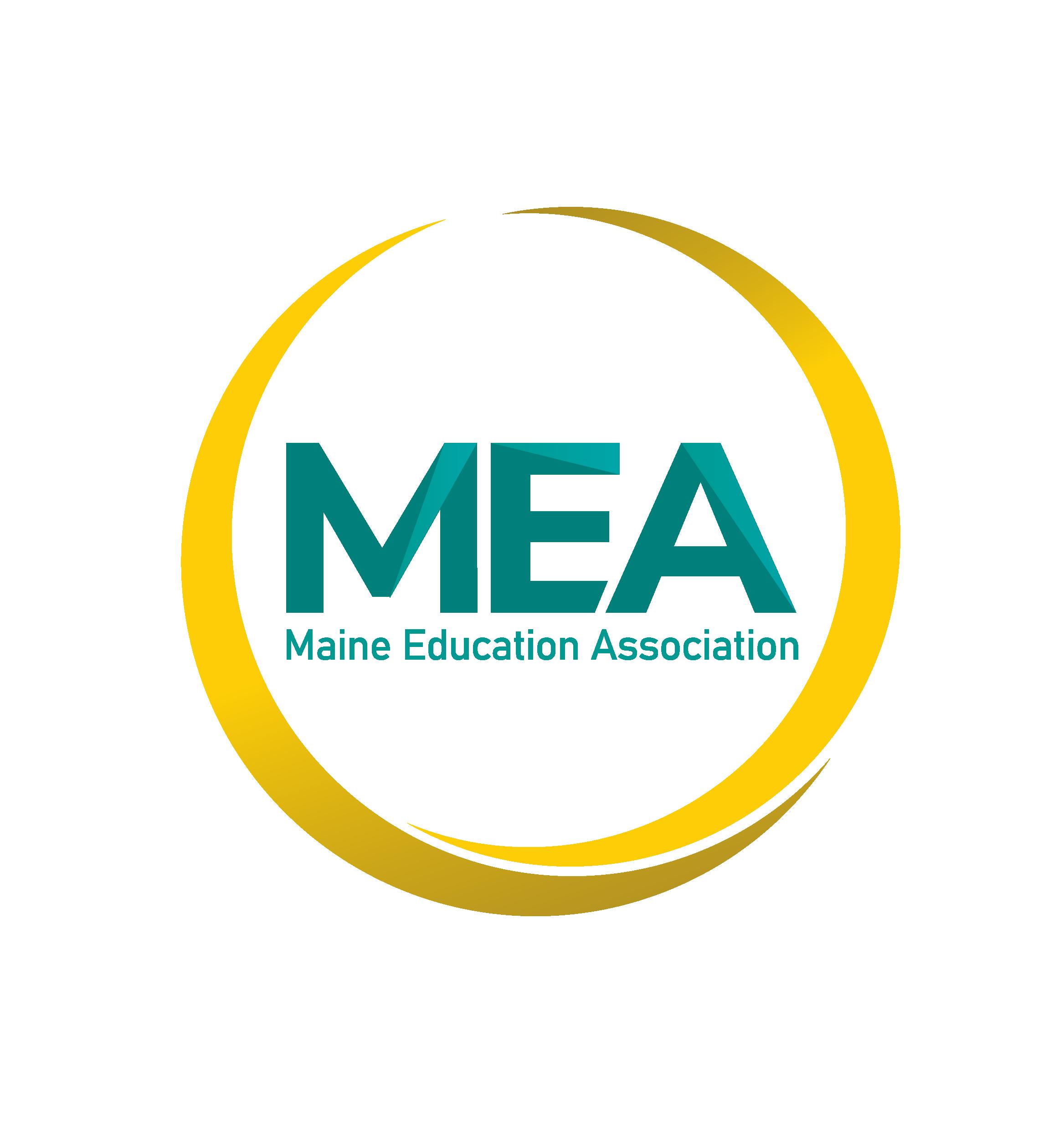
Fall 2021 | maineea.org New Year. New Resources. Refreshed MEA.

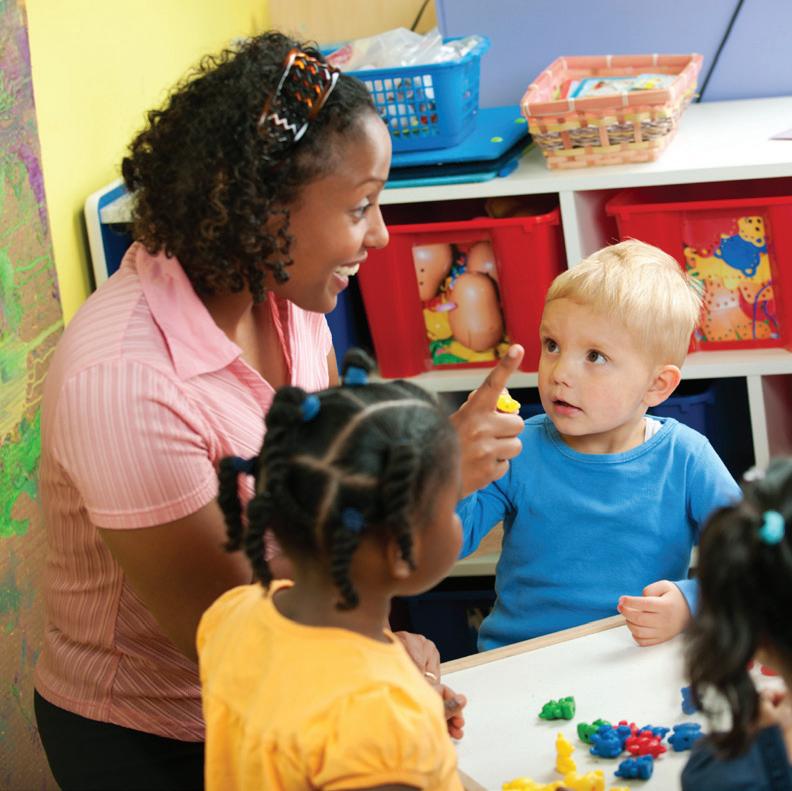

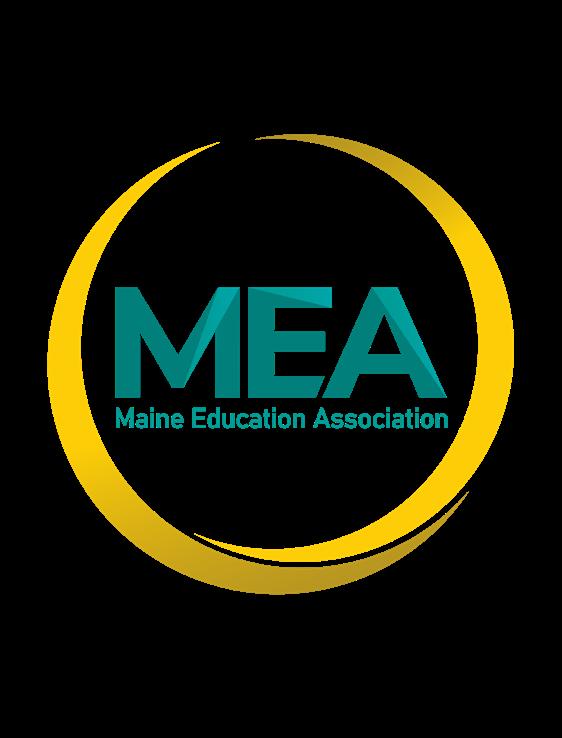
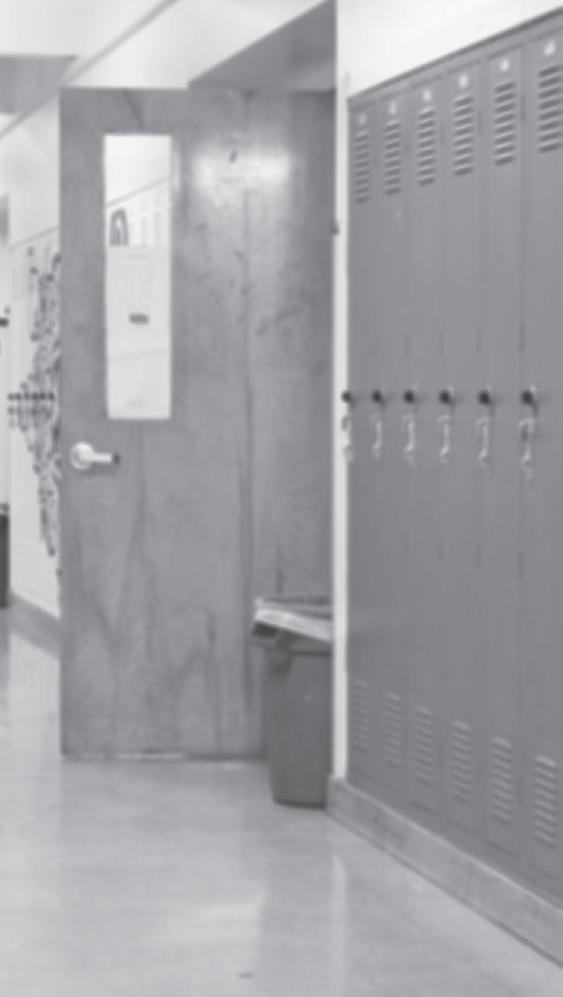


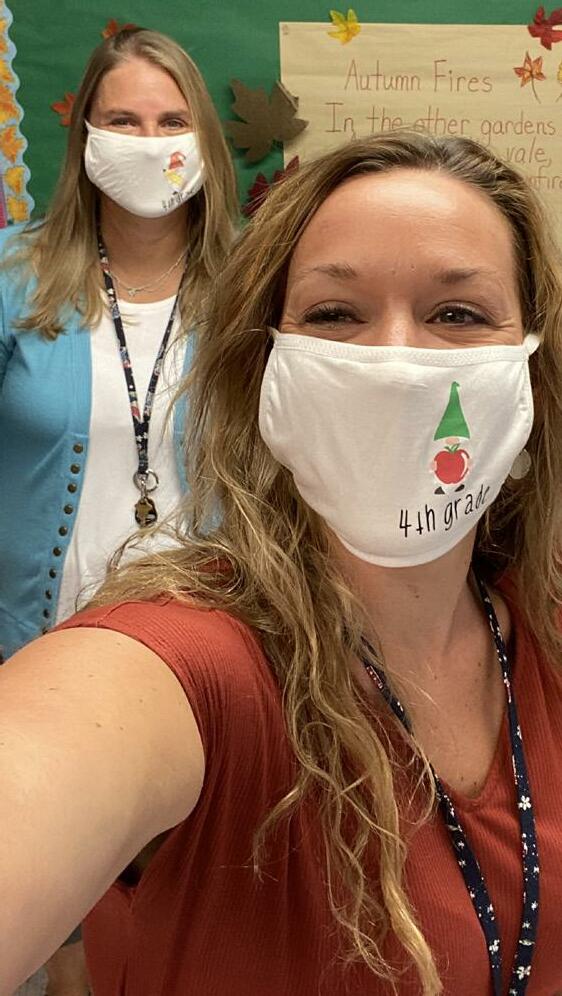
MAINEEA.ORG 3 CONTENTS 4 Union News 5 MEA President's Letter 6 From MEA's Executive Director 7 Collective Bargaining Wins 8 Challenging Bias and Harassment in Our Schools 10 MEA Advocacy Pays Off 12 Pandemic Lessons Learned 16 New Year. New Resources. Refreshed MEA. 20 Perspectives - Real Concerns... 21 Grants & Opportunities 22 Pre-Retirement Seminars 23 MEA Membership Guide 30 Read Across America Recommended Books 31 Editor's Note FALL '21 VOLUME 82, NUMBER 1 10 8 16 12 20 23 www.maineea.org @maineea @Maineeducationassociation @MaineEA @maineea Follow us on social media
MEA pushed to create this new law that will give members their due raises despite difficult contract negotiations. The MEA worked hard with state lawmakers to create this law which provides educators the financial stability they deserve.
You can check out the MEA's salary guide at maineea.org/salary-guide
While some educators have planning and prep time written into their contracts, far too many do not and MEA understands these items are key to creating optimal working conditions. MEA worked hard on a new law that allows members the right to negotiate over these items. Previously, planning and prep time were considered "permissive subjects of negotiation.” However, with this new law both planning and prep time have been taken out of that category, making them issues local unions can negotiate over.
More info on important issues, including COVID sick leave can be found on Maineea.org


Health Insurance costs for retirees are going down, after MEA advocacy.
MEA understands the need to improve the benefits of our members and has advocated for years to reduce the cost of health insurance premiums for retirees. The advocacy work paid off this past legislative session as a measure passed that increases the amount the State pays toward premiums by 10%. The new premium cost for retirees on the Medicare Advantage plan, with the increase in the State share, is $176.99 a year. This increase in the State share amounts to a total yearly savings to retirees of $472.08, or $39.34 per month. For retirees enrolled in MEABT Active plans who are tied to the rate of the school district they retired from, new rates will vary, but will be reduced due to the increase in the State share toward premiums. Please note that you as a retiree don’t need to take any action to receive the 55% contribution. The Benefits Trust is working with its partners at Anthem, the State and MePERs to implement this change for all impacted retirees.
4 Maine Educator | Fall 2021
You will now receive your step raises even if your contract expires and your local is currently negotiating a new contract but has not yet settled.
1 2
You can now bargain over planning and prep time.
3
Union News
President's Letter
Grace Leavitt - Fall 2021
For many, this season is their favorite. Despite the shortening daylight hours, the weather is beautiful—crisp mornings, blue skies, still warm afternoons with sun making the changing leaves glow even brighter. For us in education, this time of year is full of anticipation for the new academic year, excitement about meeting new students and seeing former ones, a bit of nervousness in those newer to the professions (but also for veterans), a lot of energy, especially as we are once again with students and colleagues, and yes, exhaustion, too. Each year I’ve been in the classroom, it seemed my voice gave out earlier and earlier during the first days—so much to say, to begin to develop new relationships and establish new routines, ask how others were, how their summer was, and share what I had done. The exhaustion those first weeks was always a good exhaustion I felt each evening as the year got underway.
And here we are—Fall 2021—nineteen months of a prolonged pandemic—adding ever higher levels of stress, worry, anxiety— and anger in some—to the usual mix of emotions we experience in education. In the media, at school board meetings, and in staff rooms, we hear conflicting opinions on topics we never used to talk about—masks and vaccines, being the top two, it seems. With all of this it may be hard to remember something we all--even those with differing views on these tough topics— do agree on: the importance of the work educators do, the central role in our society that public education plays, and how much we care about our students. Whether we teach, prepare their meals, keep their classrooms clean, or transport them each day—whatever our role in our students’ lives, it is a vital one. And students will remember us many years after they leave our schools and campuses.
Case in point—I’m hoping to attend my 51st high school reunion—the public high school in New York where my dad taught math for most of his 40+ year career. Like so many events last year, the 50th was cancelled, with the hope that this year, masked and with vaccination card in hand, at least some of us could gather, outdoors, to re-connect and reminisce. I had missed our 40th to be at an NEA Board meeting, being your NEA Director at the time, so I feel determined to get to this one, though I know it, too, may be cancelled at the last minute. As the date draws nearer, I find myself thinking a lot about the many educators who helped me along the way. I can see the faces and remember the names of so many—and they all had an impact, whether great or small. I would never have become
a teacher myself (I saw firsthand how hard Dad worked, and for several years held multiple jobs to help his five daughters go to college) had it not been for Srta. Fewkes, my high school Spanish teacher, whose smile and enthusiasm knew no bounds, and also for Ms. Almes, my junior high algebra teacher, who was the strictest teacher you ever met, yet she melted at the mention of Charlie Brown and Snoopy. Ms. Kuhlman, first grade, Mr. Birkelund in fourth, Ms. McPherson, Mr. Kirschner, Mrs. Chamberlain—so many more, they are all a part of who I became and who I am today.
And that is why we are educators—to help students become who they will become—that is what we all have in common, no matter our views on masking or vaccines or whatever. We are all in this because we have the desire to help our students grow and learn and become responsible, caring, contributing members of society.
As we face, yet again, the challenges brought by this pandemic, we must not let differing views divide us nor can we let them diminish our hope, the hope that is intrinsic to our professions. We must remain united, knowing that we can and will get through these difficult times. And know that MEA with the power of our union is here to support you and continues to work at strengthening connections and providing ways to keep you informed as we move forward.
In solidarity, Grace
Grace Leavitt, President Maine Education Association
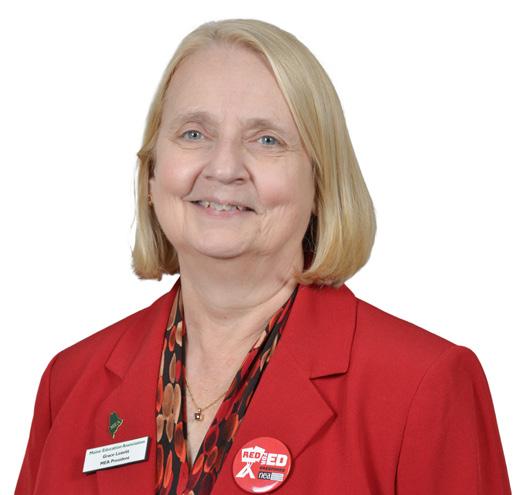

207-622-4418 x 2200
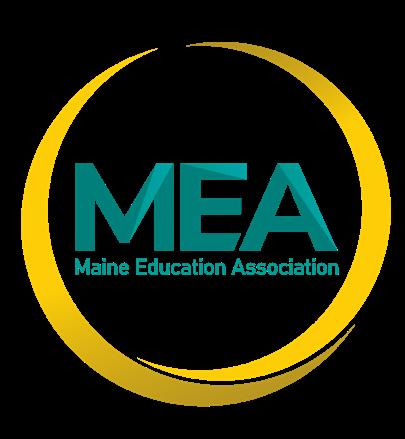
MAINEEA.ORG 5
It’s All About Perspective
So, it’s been a minute since we last chatted. A lot has happened. The summer has come and gone, and now there is a crispness to the morning air. Schools have reopened, and we all are dealing with the ongoing stress and complications of a new school year while still in the land of Covid-19.


I hope each of you took time to do some self-care and find the joy that still exists in the world, even if you must look harder these days. I got the amazing opportunity to experience the Maine coast from the ocean which is far more beautiful than I could have imagined. The water has always been my happy place, and I finally got to see a familiar ocean from a different perspective.
We have all been challenged over the last year and a half to see things from a different perspective. Despite this year not being the year we all had hoped it would be, we have all learned many things about ourselves and our connections to others.

MEA is no different. This past year, we took stock of several things, including how we communicate with our members and how we connect to the most important part of the organization, you.
We have taken a step back and engaged current and potential members in conversations about who and what we are. We have listened to different perspectives on how we do our collective work and how we advocate for our members. MEA conducted surveys and focus groups and engaged members and nonmembers alike in dialogue. And it changed the way we think about some things.
The MEA Board also wanted to move its work differently and adopted three strategic foci: membership growth, racial & social justice, and local capacity/member engagement. All previous priority objectives have been succinctly synthesized into 3 clear goals which now drive the work of the union.
In addition, some very exciting changes are happening this month at MEA, all designed to provide a different, fresh perspective and experience for our members and make MEA
more attractive to potential members. I hope you will find the evolution as exciting as I do.

First, the MEA Board of Directors adopted a new logo, a refresh of MEA so to speak. It honors the history of the organization by utilizing the same color scheme and incorporates an homage to the previous swish in an inclusive and inviting circle. The font is modern and bold. The letters connected and strong. It positions MEA to lead clearly on all things public education.

Second, the MEA website will now have a member only section which will contain information that only our members can access. Things like legal information, bargaining guidance, breakings news, political updates to name a few. These additional pieces of information provide value to our members that a nonmember will not receive. You will find more information on how to access the members only section in this edition of Maine Educator.
Third, MEA has an app! Members will now have MEA at their fingertips. This app is again a member only benefit, and only MEA members can log-in and connect to MEA and MEA staff. We are conducting a contest for those members who download the app and will give away a $500 gift card to one individual who downloads and interacts with the app by filling out the contest information. The app contains a wealth of information, and I think you will find it an additional easy connection to your union.
Those of you at the MEA RA or at a recent membership meeting have heard me talk about MEA’s growth and evolution. These new tools for MEA members and refresh of the MEA brand are just the beginning. While things are still very difficult in this continuing stressful environment, sometimes a fresh perspective can make all the difference.
I hope you like the refresh, and I look forward to meeting more of you as it is safe to do so.
Stay safe. Stay well.
Rachelle Johnson MEA Executive Director
6 Maine Educator | Fall 2021
Rachelle Johnson
From MEA's Executive Director
C ollective Bargaining Wins
Collective bargaining gives educators a voice. Through collective bargaining, MEA members negotiate for more than their own economic security. They are also securing vital resources to help their students and the communities in which they live. Every organization, including schools and higher education institutions, can benefit from the ideas and expertise of its employees. Negotiations ensure that education employees have a respected voice in the workplace and are involved in both identifying and solving school and classroom issues, which in turn promotes student learning. In the last year, there were several new laws in addition to a global pandemic that affected contractual provisions across the state. Below are some of the most recent collective bargaining successful efforts in contracts across the state of Maine.
Pandemic-Related Language
Earned Paid Leave
Maine’s new Earned Paid Leave Act (26 MRS 637, or “EPL”) went into effect on January 1, 2021. For new collective bargaining agreements, this opened an entirely new category of paid leave with different rules than educators and administrators have been used to.
MSAD 42 Central Aroostook agreed to 5 days of earned paid leave in accordance with the law while requiring only 4 days’ notice for planned leave. EPL will not be deducted from accumulated sick leave, and there is a limit of 4 members using planned EPL at a time.
RSU 21 Transportation Employees agreed in a side letter that their 2 personal leave days would have all restrictions removed to provide EPL in accordance with the law. They also won agreement that the superintendent can grant additional personal leave days to comply with the law.
Brewer Education Association reached agreement that their existing sick leave and personal days could be used in one-hour increments in compliance with the requirements of the new law.
RSU 71 Education Association agreed that 2 sick days and all 3 personal days would be used to make up the 5 days of EPL, and if the 2 sick days were not used for EPL they would be returned to the member’s accumulated sick leave at the end of the year.
Rehired Retirees
The pandemic brought a LOT of changes and modifications to how schools operate. Extra thought had to be given to how and where work is performed, and how to do it safely. Many MEA members worked longer hours in difficult circumstances to provide the best education possible to students. Some of the following items were in Memoranda of Agreement (MOA) or side letters, but they are still items worthy of consideration for inclusion in the full collective bargaining agreement. One option to consider would be to extend an MOA if there are items you like but the Board is not willing to include them in the contract.
Lewiston Education Association was able to secure an MOA that provided stipends of $600 for certificated staff and $300 to support staff in recognition of the additional workload the pandemic caused.
Mt. Blue Regional School District Education Association was able to create a district joint health and safety committee that met regularly to review conditions and the plan for the school district operations.
Mount Abram Teachers’ Association was able to protect its members from any alleged FERPA violations occurring during remote instruction raised by remote learners or their families in an MOA.
Megunticook Teachers’ Association extended their MOA to run concurrently with the new contract expiring in August 2024, and it prevents teachers from having to prepare for and teach both in-person and remote instruction simultaneously.
Another change in law that impacted bargaining was LD 1220 (5 MRS 17859) which governed health insurance coverage for rehired retirees and Medicare eligibility.
Portland Benefit Association of School Employees agreed that cash in lieu shall not be available to any employee receiving health insurance coverage through a government sponsored insurance plan such as Medicare or Medicaid and extended employer health insurance coverage to those employees, the same as non-retired employees.
MAINEEA.ORG 7
MSAD 42 Central Aroostook
RSU 21 Transp. Employees
Brewer EA
RSU 71 EA Lewiston EA
Mt. Blue EA
Mount Abram TA Megunticook TA
Portland Benefit Association of School Employees
By: Nate Williams, Collective Bargaining and Research Director
Challenging Bias and Harassment in Our Schools

Having conversations about identity—including potentially uncomfortable topics like race, religion, and sexual orientation—may not be something you feel like you know how to do, but starting the conversation is important to create safe, welcoming schools for all students. Below is a guide created by the Civil Rights Team Project, a program in the Maine Attorney General’s Office, to help you in this process of first evaluating your school community, followed by some recommendations from the Union to incorporate change for increased inclusiveness for all students.
Evaluating Your School
Identifying Civil Rights Issues in Your School Community
Use the following chart to help identity civil rights issues in your school community. Use it to engage others as a conversation starter and remember that these conversations should be ongoing.

A good general guideline is that if people of a specific identity say that something is an issue, it’s an issue. Learn to listen, and then listen to learn.
Civil Rights Teams in Schools
The mission of the Civil Rights Team Project is to increase the safety of elementary, middle level, and high school students by reducing bias-motivated behaviors and harassment in schools.
The Civil Rights Team Project supports student civil rights teams, who engage their schools in thinking and talking about issues related to race and skin color, national origin and ancestry, religion, disabilities, gender (including gender identity and expression), and sexual orientation.

Worth Asking and Answering
1. What are you doing to make sure students of all identities feel safe, welcome, and respected for who they are?
2. What is your school doing to make sure students of all identities feel safe, welcome, and respected for who they are?
For more information on how to start a civil rights team in your school, go to www.maine.gov/ag/ civil_rights

8 Maine Educator | Fall 2021
Creating Space to Talk About Disparities, Divisions and Race in Your Classroom
Compiled from NEA resources
As educators, there are “teachable moments,” opportunities to constructively and productively address race, equity and divides in your communities. Discussions in your classroom, the lunchroom or even on the school bus can be a steppingstone to addressing race in your school community and school district to help create a positive space for you, your students, your colleagues, and your school.
The following tips can help you make race conversations normal, constructive and successful. These skills are best learned through collective dialogue with others committed to addressing racial equity, as well as through lots of practice. When discussions of race and racism become normalized, the promise of equity can be realized.
8tips
to help make race conversations normal, constructive and successful.
aCreate a welcoming classroom and school community.
Every school community and classroom have its own culture and learning climate. When you make equity and inclusion prominent priorities in your norms, routines and environment, students will feel a greater sense of belonging, safety, trust, and openness. Balance participation and learning opportunities. Create a supportive school culture and hold an affirming space for all students.
The more you can form authentic relationships and connections with all students and their families, the more you will understand them--especially those who typically face the most marginalization, such as students of color, LGBT students, students from low-income families, English language learners, new immigrants, and students with physical or learning disabilities.
Encourage self-expression.
a
Give students the ability and validation to bring their full racial and cultural identities into your school so they can be themselves. Discussions can begin by giving students an opportunity to share their experiences, perspectives or stories. Identify and appreciate points of connection, as well as differences. Give students permission to only share what they want. Don’t put anyone on the spot or expect any individual to represent their racial or cultural group. Your students may be your best teachers about matters of race, each with unique experience and expertise.
a
Create opportunities for discussion.
Use current events, cultural happenings and local angles to spark relevant and meaningful discussions among your students. Pop culture (e.g. music, movies, sports, celebrities) is particularly engaging for young people, supplying continuous fodder for important race conversations.
Model your values and vision.
a
Practice equity, inclusion, empathy and respect in your school. Your actions, more than your words, will have the greatest impact on students. They are looking to their school role models for leadership and ally-ship. You can play a formative role in helping them build critical skills for navigating the complexities of race.
Don't outsource the work!
a
We may not always do it perfectly, but it means more coming from our community, our school, our classrooms, our mouths. Have a group who thinks about this stuff. It’s everyone’s work, but it doesn’t hurt to have some who are more engaged and invested than others. Having a civil rights team at the school can help guide the work. (see on left page)
Be inclusive and intentional with language
a
It’s important that we make clear who exactly is included when we say that “all” are welcome. Vaguely inclusive language is not always inclusive in practice. (For example, all men are created equal.)
aBe willing to examine your own bias and the ways you may be privileged or unaware.
Reflect upon all aspects of your educational practice. Could your curriculum, pedagogy, grading, classroom management, support services or disciplinary practices be preferencing some students while disadvantaging others? Are there any barriers to learning and success that some students may be experiencing? What are the racial impacts of different policies and practices at your school and school district?
MAINEEA.ORG 9
Under the DOME MEA Advocacy Pays Off
A Better Pension System for Educators

MEA advocated for MainePERS to research a new Social Security-based pension system for new hires. MEA will be part of this process.
MEA stands up for members, ensuring that our voice, values, and priorities are heard & respected both in the workplace & at the statehouse. MEA is continually working for better pay and benefits for members and advocating for policies and investments that ensure education equity, prevent discrimination & prejudice, and advance great public schools for all educators and students. MEA works to ensure your voice is valued in the workplace, and our efforts pay off. Here are just some of the ways MEA advocacy will benefit members in the coming school year and beyond.
Racial Justice Advocacy
MEA advocated for increased racial justice by supporting a new law that will integrate African American studies & history of genocide into the statewide learning results.











Major Bargaining Law Update
MEA worked hard to advocate for this new law that will guarantee public employees will receive their usual step increases, even if they are working under an expired contract.

Teacher Certification Update
MEA supported streamlining the certification process and making the PRAXIS optional for new entrants to help with workforce shortages in schools.
10 Maine Educator | Fall 2021
COVID Sick Days Update
MEA advocated for members who were forced to use their own sick days to quarantine for COVID reasons. A new law now requires school districts to reimburse sick days, due to COVID quarantine, up to 15 days.


Cleaner Drinking Water
MEA pushed for years to tighten drinking water quality standards-this new law reduces the allowable amount of lead in school drinking water.

Chemical-Free Schools
MEA backed the law that prohibits the use of certain toxic pesticides within 75 feet of school grounds.


SRO Diversity Training
MEA supported a new law that requires school resource officers to participate in diversity, equity and inclusion training in their first year.

Equity in School Lunch
MEA believes food should not be a barrier to learning and advocated for MDOE to create a uniform application for free/ reduced meals in multiple languages.
COVID Pension Protections
MEA worked to allow educators in MainePERs to buy credit for any stipended position they may have missed due to COVID, making it so educators do not have their retirement benefits forever impacted due to COVID.
MAINEEA.ORG 11
Pandemic Lessons Learned
Q & A with the Maine County Teachers of the Year



What lessons did you learn while teaching during the pandemic about your practice that could help others in their jobs?
There is always time to connect with students. It is the most important aspect of our profession. Take at least 10 minutes every morning to talk, ask questions, and listen to them.
Diana Mahar, Washington County

The most important lesson I learned during the pandemic is that students can learn so much more if we slow down and focus on what is most important. During the pandemic, I cut out entire units to make space for the limited time we had together and found that I had to slow down even more with the pace of hybrid teaching. I had to “hurry slowly,” from the Latin term festina lente which Maryanne Wolf, author of Reader, Come Home, describes as recovering “a rhythm of time that allows you to attend with consciousness and intention.” This intentional slowing down contributed to more in-depth learning which led to better learning transfer; and it had the added bonus of easing student anxiety since we weren’t rushing from one learning opportunity to the next. The key to slowing down for me is teacher clarity for myself and my students. John Hattie’s research reveals that teacher clarity can double the learning in a year. For me, teacher clarity is about purpose, focus, and letting go. I start with my planning and then continue with how I communicate learning intentions and criteria with students throughout the process. This clarity starts with purpose: I have to determine what is best for the students I have right now. Then, I have to focus on that purpose in curriculum mapping and each lesson design. Finally, I have to be willing to let go of all that doesn’t meet the intended purpose. During the pandemic, I let go of a lot and hurried slowly and was pleasantly surprised that the learning was so much deeper!
Patti Forster, Knox County
Trying new things was a common theme throughout the pandemic. It gave teachers and students a chance to try new ways to learn and teach alongside each other. Students having the opportunity to see their teachers learn something while also seeing some of the struggles is such an experience. When in a google meet, I will never forget when a student was trying to present something to the class. As I was trying to help this student, another peer was typing the directions in the chat to support them. This struggle and working through it together shows the importance of being a life-long learner and collaborator to our students. Hillary
Hoyt, Waldo County

I got better at quick, meaningful ways to collect formative data on student learning and as a result, I learned to more often celebrate the smaller growth students make along the way. In the hybrid model, I only had my cohorts of students 2 or 2 ½ days per week. Data got old quickly in this model and time was more precious and limited than ever. End of unit celebrations were in place, but I learned how to celebrate with students more during their learning, not just when the unit concluded. Class time was filled with more chanting, dancing, air-high fiving, work samples on display, shoutouts, partner sharing, etc. I learned how to make moments a little extra special to make students aware of and highlight the growth they were making each day. It helped to keep students motivated and feeling proud of themselves. This year was so hard AND our students grew! That’s worth celebrating.
Jessica Harvey, Androscoggin County
I have always taught students to step out of their comfort zone, try experiences they are hesitant to, or in areas that are not their strength. In the past I would say we are now on the “roller coaster” or ready to “skydive” which signaled students we are trying something new. I would say I am right there with them. I would teach lessons beyond content knowing that the skills
12 Maine Educator | Fall 2021
Patti Forster, Knox County
Diana Mahar, Washington County
Hillary Hoyt, Waldo County
Jessica Harvey, Androscoggin County
would be important for future university classes, internships, and employment. This year was HUGE in modeling these concepts in real time, especially using technology. Students saw me fail, relearn, recover, and try again in real time. They did not see me quit, shy away or give up. There is a real-life lesson.
 RayeAnne DeSoto, Kennebec County
RayeAnne DeSoto, Kennebec County
The most important part of teaching---the heart of it--is loving and caring for the students. The pandemic reminded me that despite everything we couldn’t do this year, we could still make our students feel cared for, valued, and heard. Sometimes, that is enough. I found myself prioritizing taking 5-10 minutes at the beginning of each class to check in with students and ask them how they were doing. In the reflections that I had students complete at the end of the year, many noted that these informal check-ins where we could just talk were the best part of their school year. It really allowed me to reflect on my teaching practice, and cemented what’s at the core of my teaching practice: teaching and learning cannot occur unless there are positive, trusting, supportive relationships between and among students and teachers.
Lianna Fenimore, Sagadahoc County
At the start of the 2020-2021 school year faced with hybrid learning and having to “cut” to teach “only what is essential,” I was discouraged to have to give up so much -- only to find out that this year was one of my most rewarding years as a teacher. Why? Because I learned that asking my students to ask questions of each other, to bring in their own resources connected to primary readings, to digitally create and teach each other, and to cross these learnings to my different cohort classes made a much richer learning environment than sticking with the curriculum as it was outlined for an entire year. Having to think day-byday and the uncertainty of it all actually reinforced authentic, individualized learning, and the cohorts took on collective identities that allowed me to mold experiences for them too. All this to say, pandemic or not, students always should have voice and choice in what and how they learn.
Kelsey Stoyanova, Penobscot County
Make sure that I cherish and take advantage of every minute of in-person class time. When I am tired or not wellprepared enough, my classes are sometimes little better than an on-line class. Instead, I want to focus on building in more projects, team investigations and hands-on learning opportunities to make school a rewarding and enriching environment that my students love spending time in.
 Bill Hinkley, Lincoln County
Bill Hinkley, Lincoln County
What is your best quick tip you would like to share? (Quick hand washing idea?)
Use digital tools to reach out to parents/guardians at the beginning of the year. Create a Google Form asking for their input through a series of questions about their child/ children. Share the link and collect some great information from them!
Diana Mahar, Washington County
Embrace technology and make its use meaningful to enhance the educational experience for your students.
Andrew
Kirby, Aroostook County
Washing hands for lunch can take a long time when you teach early primary. A colleague of mine taught me a trick to cut down on the time it takes. I will continue this hand washing trick. When students are lined up waiting to wash their hands, you spray their hands with water. Give them a squirt of soap. They scrub their hands while waiting. When they reach the sink all they have left to do is rinse! It cut hand washing time in half!
Michelle Laliberte, Franklin County




Letting students have the option to show what they are learning through digital ways! Many students this year were shy when sharing out their thinking with the class but were excited to share their learning through technology! It is an excellent way for a teacher to see what students are learning, whether through recordings, surveys, or more.
Hillary Hoyt, Waldo County
MAINEEA.ORG 13
RayeAnne DeSoto, Kennebec County
Lianna Fenimore, Sagadahoc County Kelsey Stoyanova, Penobscot County
Bill Hinkley, Lincoln County
Andrew Kirby, Aroostook County
Michelle Laliberte, Franklin County
Do not underestimate the power of 30 second dance parties or 5 collective belly breaths. Kids will show you what they need; listen.
Jessica Harvey, Androscoggin County
Think about intentionally leaving some of your back-toschool decorating unfinished. What signs or posters or artwork could you invite students to help create in the first weeks of school? By having students co-construct the classroom, you can learn more about them, ease into cooperative work, and the students feel valued and gain shared ownership of the space. Everyone wins.
Melissa Guerrette, Oxford County
Open up digital options for students. Over this last year kids have become much more fluent in digital communication. Allow them to shine in this new found skill.
Sarah Doremus, Hancock County

Spend the first bit of class, five or ten minutes, asking students what is worthy of being talked about today. Frame it with a prompt (book talk, current event share, etc.) if you want to, but inviting your students to share might be the one opportunity they get that day to feel heard about something they are passionate about and will give you insight into those passions which can have a lasting effect on your relationship with them and their relationships with one another.
Kelsey Stoyanova, Penobscot County
Using technology/Google classroom eliminated standing in front of the photocopier this year and saved so much paper. I attached digital copies and encouraged students to use their iPads to complete their assignments. They uploaded pictures of their work for me to correct. Students became experts with their Google drives.
Lisa Martell, Piscataquis County
will you help support students for whom attendance or participation was inconsistent or less frequent during the past school year?
We created a mentor program that was led by non-classroom teachers and paraprofessionals during the pandemic. Mentors were liaisons between school and families. Mentors worked closely with the classroom teachers to encourage attendance and participation with students. The lesson that we can take away from that for this year is to keep those connections active! Work as a team to support students in ways that we did during the pandemic. Call or text when a student is absent and express how much they are missed.
 Diana Mahar, Washington County
Diana Mahar, Washington County

Using Google to record lessons. I will continue to use these for two groups. Those students who we always have that go on family vacations, have extended illnesses, many of our sports members who have to go through concussion protocol. This will make it easier for them to stay engaged until they return, without the daunting “make up work” they get in all their classes. And those students who have attendance issues, it gives them a non-confrontational way to catch up. And I will continue to have the work electronically available for all students.
Kevin Malady, Somerset County
I will continue to use Seesaw to communicate with families. Even if remote learning is not an option, I will support students and families with posting assignments and tasks. I learned that it did not take much time to post a quick link or assignment to let families know what is happening in our classroom. When a student is absent, families can support their child at home.
Michelle Laliberte, Franklin County
One of the most critical ways teachers can support students’ attendance is early, positive contact with their caregivers at home. I like to call every students’ home(s) during the first month of school to introduce myself, give a genuine positive comment about their child, and to check in to see how things are going at home and to see if I can answer any questions. After this initial contact, communication should remain consistent throughout the year. Call home again, write a positive note, send an email with easy information to connect with home about. When the time comes for a more challenging phone call, you’ll have this relationship already established. The first time you call home should not be when there is a problem or concern! Additionally, I will be sure to greet my students, remind them how glad I am to see them, and to carve out those intentional moments for 1:1 conversations with students so that I can get to know them and connect with them on day one. This isn’t a different
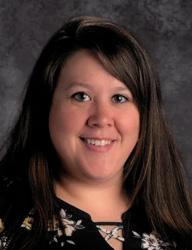
14 Maine Educator | Fall 2021
How
Melissa Guerrette, Oxford County
Sarah Doremus, Hancock County
Lisa Martell, Piscataquis County
Kevin Malady, Somerset County
approach than any other year, but I think it’ll be more important than ever for the students and families who are getting back into in-person school routines. We have to meet them and welcome them wherever they’re at.
Jessica Harvey, Androscoggin County
Establishing contact early on with both the student and their caregivers will be essential to building the foundation of trust that is necessary for a student to feel like school is a safe space for them. Once the foundation is built and they start coming to school, keeping them at school will come from fostering that relationship with them, engaging them in relevant experiences, and always maintaining an open line of communication between student, home, and school.
Kelsey Stoyanova, Penobscot County
I will continue to use Google Classroom/Docs/Forms for lessons and communications and for students and their families. Being a theater director, I loved recording and uploading lessons that allowed for me to explore creativity in presentations and tailor the delivery to specific audiences. Google classroom/docs also helped my highly disorganized students (papers were not left in the bedroom or crammed in the backpacks.)
RayeAnne DeSoto, Kennebec County
As a teacher researcher, I was able to collect data from students this past spring on their general mental health and well-being. I collected the same rating scales prior to COVID and will now be comparing the scores to investigate the impact the pandemic has had on studentsthrough their own voices. As I work through the results of this data, I will be able to share these findings with fellow educators and with students to drive our SEL work during advisory activities throughout the school year.
As the new Resiliency Coordinator at the Biddeford Primary School, I look forward to providing students with mindfulness activities and SEL methods to help ease their transition back into the classroom. These students will be received with open arms and continual support to help them be socially, emotionally and academically successful. Christine
Goulet, York County
I’m going to make sure that my students hear me say more than ever, “I’m so glad you’re here.” Between teaching in a hybrid model where I only saw my students half of each week and the extended quarantines, I look forward to having my students back in class, full time. Every student needs to know and be reminded of how important they are to their classroom community and how glad their teacher is to be with them every day.
Jessica Harvey, Androscoggin County
Time spent nurturing our classroom communities will carry an added importance as we re-form classrooms with learners of various experiences. I will lean on picture book read alouds to quickly build common experiences for my new class. This way, we will meet a cast of characters who are the same as and different from us and open the door to conversations that honor and validate the many mixed emotions of our return.
Melissa Guerrette, Oxford County

This year reminded me that there is no one-size-fits-all model of education for our students. It’s imperative that we focus on the silver linings from this year (more time with family, creative ways of being together, students gaining time management and organizational skills and a sense of independence, creating robust and effective remote learning lessons, more student choice, etc.) and move forward in a way that does not focus on what was lost---but rather what we can gain from this as a collective. I will continue to prioritize the well-being of my students and strive to make my classroom a welcoming and safe place to be. I will listen to them and use their voices to guide my teaching.
 Lianna Fenimore, Sagadahoc County
Lianna Fenimore, Sagadahoc County
I will NOT stress over what they did not cover “last year”. I will let the students know they have all the tools to do well and WE will proceed together through the material. I am not a “punishment” type of guy. My response to those students will be to help them be part of the excitement of being in this class.
Kevin Malady, Somerset County
read more, including the biggest silver lining of the pandemic, and (the other question) go to our website at maineea.org
MAINEEA.ORG 15
How will you address the emotional toll this took on students, some of whom may not have been in a classroom for more than a year?
Paige Fournier, Cumberland County
Paige Fournier, Cumberland County
Christine Goulet, York County
to
Member Exclusive Content
New Year. New Resources. Refreshed MEA.
The start of a new school year comes with a renewed hope for a fresh start. The MEA is feeling refreshed as well and is rolling out its new look with new resources and revamped goals that truly reflect the work we do and the members we represent.
The MEA has always stood for great public schools for every Maine student, but we are so much more. We are a diverse group of professional educators, standing together to ensure that our voices, values, and priorities are heard and respected. MEA advocates for better pay, benefits, and working conditions for members. We stand up for, support, and empower members in and out of the classroom. And MEA works to ensure equity, prevent discrimination and prejudice, and

advance great public schools for all educators and students across the state.
While MEA has nearly 24,000 members statewide, more than 22% are close to retirement, which means many new educators are joining the profession.
In order to stay viable, the Union needed to adjust, as we all have learned over the last year, to help more early career educators understand the importance of being Union members. With that adjustment comes new resources, new training opportunities and a new look—think of MEA as the middle schooler stepping up to high school-we've got a new look and some new gear, but at our core our values are the same:
Support, Advocacy, Equity.
New Logo
Just like that middle schooler stepping up, some style changes were needed to adjust to the times and fit a more updated “you.” MEA’s logo did and continues to speak to our mission and members, but the Union wanted to give it a bit of a refresh as we head into the future.
MEA’s new logo uses a bold, modern sans serif typeface which conveys a clean, modern look. Lighter elements provide depth and visual interest, while the positioning of these elements lead the eye through the letterforms in the “forward” direction-as the Union is always moving forward to support our members.
The clipped “E” allows for close positioning of the letters and increases their sense of connectedness, symbolizing how the Union is always close to its members at every turn.
The letters are joined by a set of interlocking arcs in MEA’s signature gold color. The arcs are a tribute to the former logo’s swoosh through the letters, signifying the history of the past is interwoven with the future. The circle formed by these arcs has much more energy than a single unbroken circle, as well as denoting how separate elements can join together to form a cohesive whole, symbolizing how the MEA is made up of all our local associations. Additionally, the outer element encircling the letterforms creates a sense of inclusiveness and protection, while the openings intimate that all are welcome. The uneven sizes of the elements speak to how the strengths of all are needed to complete the logo, just as our collective voice is needed to advocate for the profession and our students.
16 Maine Educator | Fall 2021
1 2 3 1 2 3
Members-Only Website

Also new this school year, a new members-only section of the MEA website. MEA offers a lot of valuable information for its members and wants you to have access to this in an easy way. You will now be able to access key pieces of information-think collective bargaining guidance, salary data, legal guidance and more-online with your Individual ID. Log in at maineea.org to unlock your members-only information. You can learn how to find your Individual ID here: maineea.org/how-to-find-your-individual-id/
MEA is working hard to meet its members’ needs while sharing your values, focusing on improving day-to-day working conditions, your pay and benefits, and the profession as a whole. The MEA has and always will have your back and encourages you to make the most of your membership and check out the new resources available to you in the members’ only section of the website and on the new MEA app.
Live chat is available, Monday-Friday 8:00 a.m. to 5:00 p.m. when MEA offices are open.
Live Chat

It has never been easier to get in touch with MEA! MEA now has a live chat feature where you can talk directly with an MEA staff member on your phone or your computer. This live chat function is available during office hours. Reach out anytime you need us… we are just a few clicks of your keyboard away.


MAINEEA.ORG 17
New MEA App
The MEA continues to try and meet your needs and is also launching a new way for you to access information from the Union. You can now find MEA information at your fingertips with our new app! There has never been an easier way to reach MEA.

The app will give you up-to-date information from your Union so make sure you download it today and enable push notifications, so you don’t miss a thing!
The MEA App is in the App Store and Google Play.
Download the MEA App Today!
Scan the QR code for the Apple App Store.

Search "Maine Education Association" in the Google Play Store.

18 Maine Educator | Fall 2021
Master of Science in Education - Inclusion Education

The Master of Science in Education – Inclusion Education (MSEd-IE) program prepares educators to become special education teachers, and is an approved program for preparation for the Teacher of Students with Disabilities 282 Endorsement in the State of Maine. The 282 Endorsement earned will correspond to the educator’s current level of teacher certification in the State of Maine (i.e. 282E-Elementary K-8 or 282S-Secondary 7-12). Within this program, students will learn co-teaching instructional practices, how to model, teach, and nurture behavioral skills, and much more. Our faculty members include highly qualified and experienced educators with first-hand knowledge of inclusion best practices. If you’re a current, certified teacher looking to earn your master’s degree, or expand your skill set, these in-depth courses and UNE’s expert faculty will help you as a teacher, develop the skills necessary to lead an inclusive classroom.
Program Highlights
• No GRE required
• 30-credit hour program
• Complete your degree in just under two years
• Multiple start times: spring, summer, and fall
• Leads to a 282 Endorsement for Teachers of Students with Disabilities in the State of Maine
• Dynamic faculty of practitioners, researchers, and educators
• Regionally accredited by the New England Commission of Higher Education (NECHE)
• 100% online – no campus visits required 800.994.2804
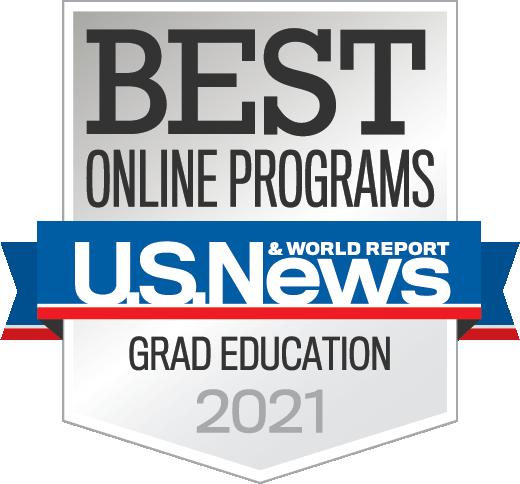
MAINEEA.ORG 19
| online.une.edu LEARN MORE TODAY
| education@une.edu
REAL Concerns...
The following is the opinion of Rob Taylor, a teacher at Spruce Mountain High School and union leader with the RSU 73 Education Association.
I have real concerns about the year, regardless of how we return to school. Let's take the best scenario - kids are in school live and in person five days per week. That sounds like "we are back to normal." But what does it really look like? At the end of last year, we had already received information on students who are not yet medically cleared to return to school and may need to remain fully remote, so it may not be business as normal for all students and teachers.
I am really concerned about students who have not seen the inside of a classroom in 18 months returning to a 5 day per week "normal day.” I think the start of the year may prove more challenging than the start of this past year. A high percentage of our most challenging students opted to be fully remote. Our disciplinary issues dropped. With kids only in school 2 days per week and 25% opting to be fully remote, we had few detentions or suspensions last year. For students who opted for hybrid models in class two days per week, my attendance rates were higher than average. Academic expectations were modified to meet the needs of kids in hybrid and remote models. What will it be like this year?
How will students adjust when they return to school? They have not had to get out of bed 5 days per week or interact with peers and teachers for a year and a half. Will kids attend every day? What will behaviors be like? What will the residual effects of trauma induced by a long absence from school be like? I think it will be a real struggle to get back to "normal."

An amazing amount of preparation was done last summer at state and local levels. People had time, as there was literally nothing else to do. Personally, this summer I attended two weeklong professional development workshops, working with my Envirothon students to compete in an international competition, and working on curriculum. I fear this year will present great challenges. I also fear there will be little to no preparation for this or even awareness or concern about what is coming. I believe many people think it will be "business as usual."
Personally, like many teachers, I am not trained to deal with kids with serious social and emotional needs. I have always had to rely on our social workers and guidance counselors for help with kids struggling in classrooms. Want to learn about photosynthesis? I am your guy. If you are having anxiety or depression, my job has been to understand your situation, be supporting, caring, understanding, and get you to a person who has the expertise to deal with this. In fact, some teachers are seeing counselors themselves.
The last 18 months have been a long, bumpy road and I don't think the journey is over. It will be a while before we are "back to normal."
Grants & Opportunities
MEA and our affiliate partners offer members many opportunities that help provide additional support for your work and your students. MEA encourages you to take advantage of as many of the offerings as possible.
Lambert Political Action Grant
FMI: https://maineea.org/award-grants/ Deadline: December 10, 2021
This grant is designed to help Local Association members develop and implement a political action program in their schools and communities.
Human, Civil Rights and Social Justice Grant
FMI: https://maineea.org/award-grants/ Deadline: December 10, 2021
The grants are designed to help local association members provide Human and Civil Rights leadership in their schools and communities.
Members Are Leaders Grant
FMI: https://maineea.org/award-grants/ Deadline: December 10, 2021
The Members are Leaders Grants are designed to help local association members provide professional and educational leadership in their schools and communities.
Read Across America Grant
FMI: https://maineea.org/award-grants/ Deadline: February 1, 2022
To help plan and prepare for a reading celebration, MEA is offering Read Across America Incentive Grants to our local associations who sponsor association activities for this event. Grants of $50 each will be awarded on a first-come, first-served basis. Requests must be made by the local association President for funding of activities within the local association.
NEA Foundation Student Success Grants
FMI: https://www.neafoundation.org
Deadline: October 15, 2021 and June 15, 2022
Are you a teacher or support staff educator who has an idea to enhance students’ critical thinking and problem-solving skills? You can receive funding for projects that:
• develop and implement a project supporting personalized and experiential learning;
• support students’ mastery of essential academic content;
• support students’ cultural understanding and appreciation;
• promote students’ communication and collaboration skills; or

• enable students to engage in learning experiences connected to real-world issues and challenges. Grant funding is available in $2,000 and $5,000 increments.
NEA Foundation Learning & Leadership Grants
FMI: https://www.neafoundation.org
Deadline: October 15, 2021 and June 15, 2022
Through Learning & Leadership grants, members can receive funding for:
• Individuals to participate in high-quality professional development.
• Groups to fund collegial study. Grant funding is available in $2,000 and $5,000 increments.
Music & Arts Grant
FMI: https://www.calcasmusicartsgrant.com/ Deadline: Rolling
The California Casualty Music & Arts Grant was established to provide support for K-12 public schools negatively impacted by reduced budgets. As a member of MEA you can apply for a grant award of $250 for a music or art need at your school.
MAINEEA.ORG
MEA Pre-Retirement Seminars 2021-2022
MEA's Pre-retirement seminars will be held virtually by Zoom over the course of two consecutive nights from 5:00-6:15 P.M. The link to attend a session will be emailed to registrants the day before you are scheduled to attend. Registration once available is online at maineea.org/pre-retirement-seminars. ONCE A SESSION IS FILLED, REGISTRATION WILL BE CLOSED FOR THAT SESSION.

Spring Seminars - Registration Available At a Later Date Session Date Presentation
Session 4
Session 5
Session 6
Session 7
Session 8
Tuesday, January 25, 2022 Wednesday, January 26, 2022
Tuesday, February 8, 2022 Wednesday, February 9, 2022
Tuesday, February 15, 2022 Wednesday, February 16, 2022
Tuesday, March 1, 2022 Wednesday, March 2, 2022
Tuesday, March 8, 2022 Wednesday, March 9, 2022
MEA Benefits Trust and WEP/GPO MEA-Retired and MainePERS
MEA Benefits Trust and WEP/GPO MEA-Retired and MainePERS
MEA Benefits Trust and WEP/GPO MEA-Retired and MainePERS
MEA Benefits Trust and WEP/GPO MEA-Retired and MainePERS
MEA Benefits Trust and WEP/GPO MEA-Retired and MainePERS
22 Maine Educator | Fall 2021
2021-2022
MEMBERSHIP GUIDE
When members needed us most, MEA was there.
The COVID-19 pandemic changed our schools and jobs in a way no one expected. Everything from, "What will we get paid?" To, "Can we safely work in our schools?" To, "What are the rules around remote instruction?" There were so many questions and needs for support, and MEA was there to help members!
MEA made sure our members were paid at the start of the pandemic, regardless of ability to work, we advocated for safety measures and flexibility around so many issues pertaining to your jobs and our students.
Use this guide to fully understand how to access all the benefits of your membership.
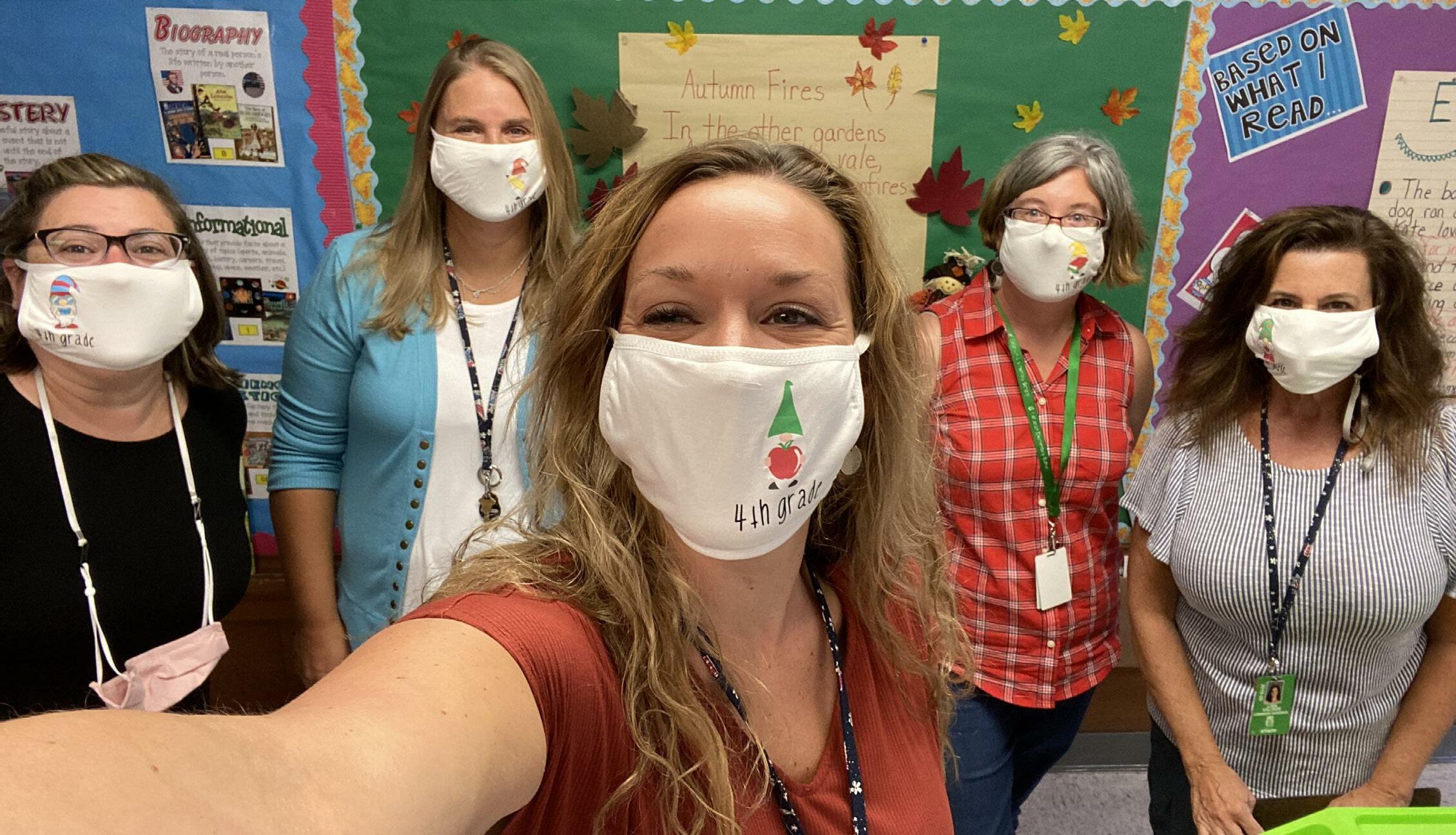
MAINEEA.ORG 23
2021-2022 Membership
Guide
Whether you’re a first-year member or veteran educator, balancing life and work is always a challenge. The help you provide children and young adults each day matters, but you can’t forget to help yourself and learn what benefits are available to you as a member.
Watch for:
When you see the MEA logo read about an interesting fact or service that the MEA offers members.
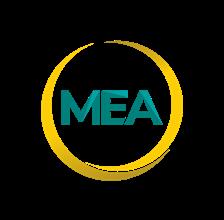

Where the Journey Begins
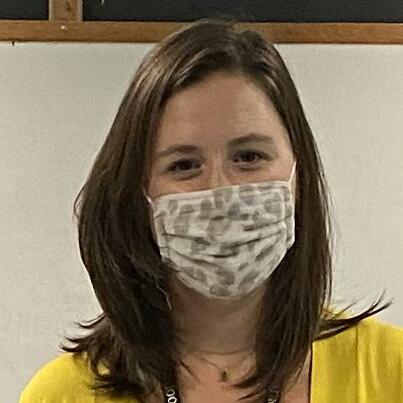
When you are an MEA member you are not “in it” by yourself—there are nearly 24,000 members statewide. Within the union, your local association executive committee and your building representative are your first points of contact. From there, MEA staff are always available to assist you, provide resources, or defend your contract. You can rest easy knowing not only are you part of the largest union in the state but the largest in the nation. As a member of the MEA you are also part of a much larger family at the National Education Association, which has more than 3 million members nationwide—1 in every 100 Americans is an NEA member. A fellow association member is never far away!
Taryn Southard Portland EA
Access to MEA staff who are always a phone call or click away.
24 Maine Educator | Fall 2021
“There are so many unique opportunities available through the MEA if you just pay attention and get involved.”
2021-2022 Membership Guide
MEA supports & empowers educators in and out of the classroom.
Your Rights
An important members-only protection you receive is your right to have a union representative present if you feel you need one in matters legal or otherwise. Know your Weingarten Rights and keep this copy close by as a reminder of this important member benefit.
MEA believes in community outreach— as a member you have an opportunity to take part in projects to improve the lives of your students and your community.



Understanding Your Collective Bargaining Agreement
Understanding your CBA (collective bargaining agreement) is necessary in your career journey. Your CBA dictates everything from how many hours you are contracted to work each day to any planning periods you may receive to the amount of money you may be eligible for if you opt-out of the health insurance plan. Everything from teacher evaluations and discipline guidelines can be found in your CBA. Your membership, in part, helps fund people who work to ensure members have fair working conditions and employers are upholding their end of the CBA. Without your CBA and the collective influence of MEA members to help shape policies, procedures and legislation your career would be at the whim of administrators, school boards and politicians.
Help with implementation of work related issues, like evaluations, dealing with administrators or discipline.
Don’t forget this Weingarten
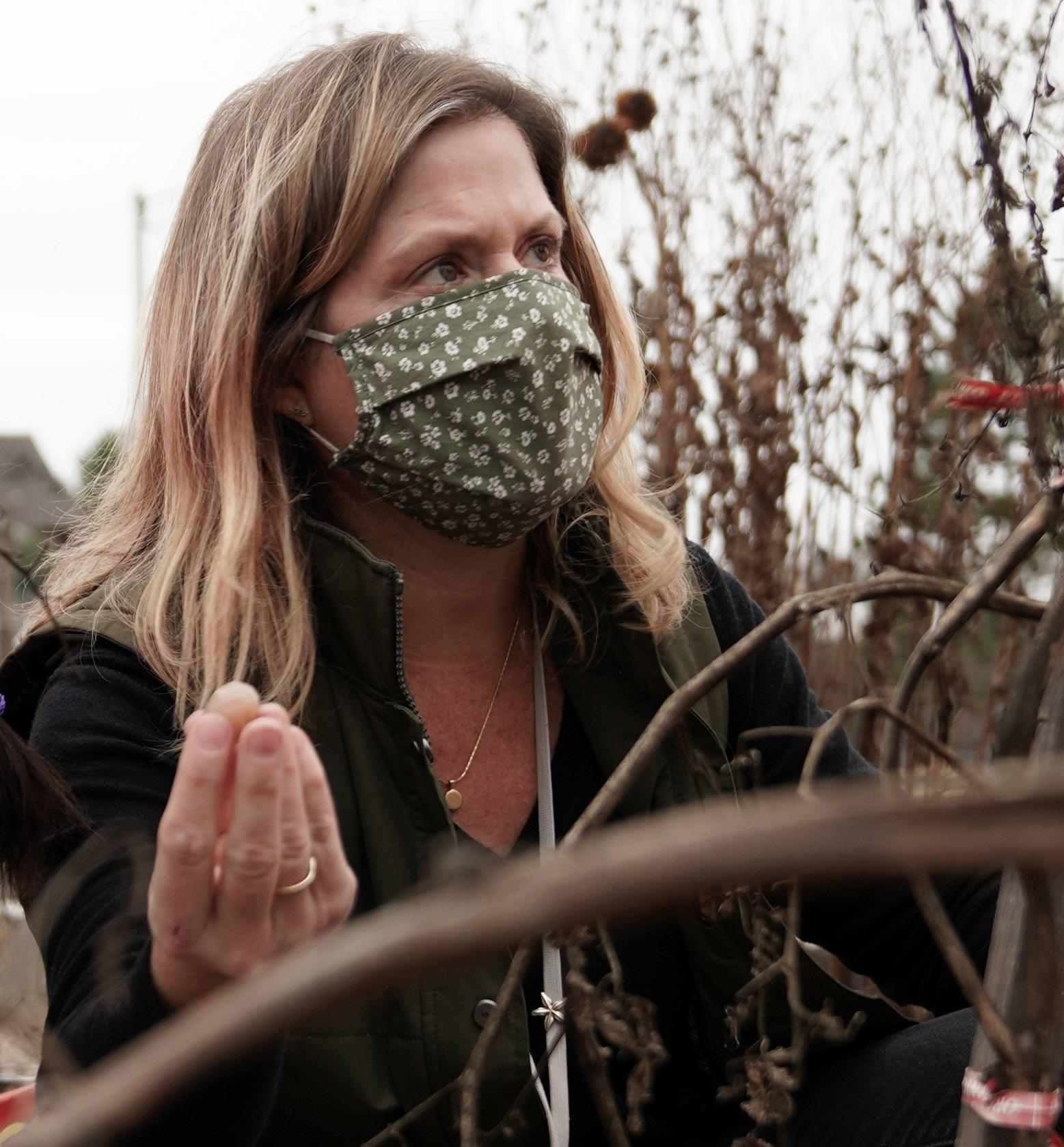
Rights
“If this discussion could in any way lead to my being disciplined or terminated, or affect my personal working conditions, I respectfully request that my union representative, officer, or steward be present at this meeting. Until my representative arrives, I choose not to participate in this discussion.”
Free death and dismemberment coverage for eligible members and liability insurance
MAINEEA.ORG 25
!
2021-2022 Membership Guide
Advocates for Children and Education (ACE): MEA member driven program to help students and the profession.


As Seen on TV
ThankYou!
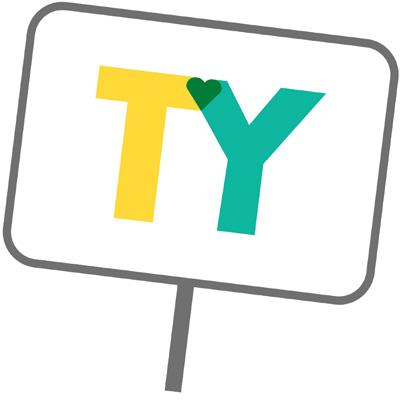
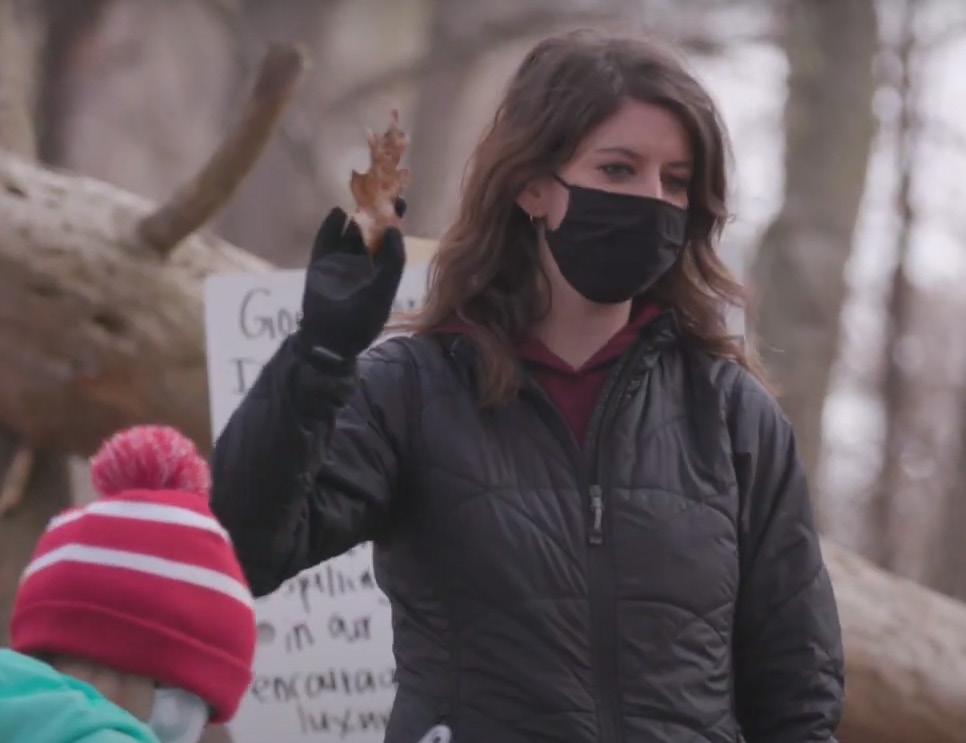
MEA launched a “Thank You” campaign for our educators to give the public a greater understanding of the efforts you all went through during a school year. The MEA works hard to publicize the great things happening in our public schools to increase the public image of the profession, the association, and our members. Highlighting your work is important to help increase respect for what you do!
Advocating for Members
There really is no part of your job that is somehow not impacted by local, state or national policy makers. Everything from how much funding your school receives to how many hours are in a school day to the standardized test used—it’s all decided by someone other than you, the educator. But that doesn’t mean you can’t have a voice in your work.
MEA supports & empowers educators in and out of the classroom, giving them a strong voice on the issues that impact students and schools. MEA helps improve members’ experience in the workplace, including dealing with administrators, classroom challenges, the availability of resources, and more. MEA strives to be an ally for social justice, working to stop discrimination in our schools, promote diversity, and demand education equity for all. That’s why the MEA also works to make sure your voice is heard in your local communities, in Augusta and in Washington D.C.
The MEA is the strongest and most effective advocate for public education and the profession in the state.
Public image campaigns to highlight the success of members.
26 Maine Educator | Fall 2021
2021-2022 Membership Guide
Your Voice

The power of a collective voice is far more powerful than a single voice alone. MEA voices continue to impact change. From requiring health and safety protocols during COVID-19 to prioritizing educators for vaccine access to fixing a flawed testing system, revising the rules of restraint in the classroom and charting a new direction for the teacher evaluation system in Maine, MEA members paved the way to improving our schools.
Fellow MEA members from your local association may serve on a number of different committees and groups at the local, regional or state level, including representing your interests at the MEA Representative Assembly, the decision-making body of the MEA which sets the course for the beliefs and work of the association for the year.
At its core, MEA organizes members from diverse backgrounds to stand together, support one another, and exercise our power to stand up for ourselves and our fellow educators.
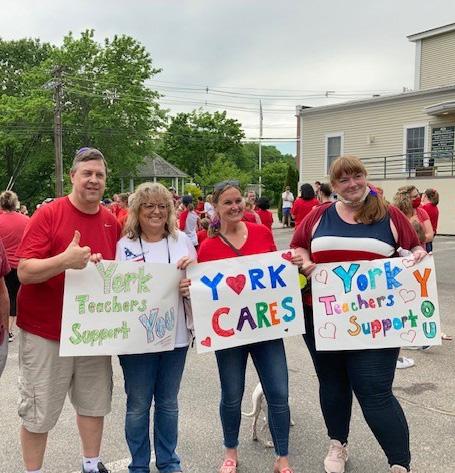

Advocacy work to make sure state and national policies directly benefit students and educators.

MAINEEA.ORG 27
! Follow Us You can connect with MEA online through social media. Check out the latest pins on the Pinterest page, resources on Facebook, pictures on Instagram or discover new colleagues on Twitter. Facebook.com/maineea @Maineeducationassociation @MaineEA @maineea 2021-2022 Membership Guide
Help maintaining and negotiating your collective bargaining agreement to safeguard working conditions, salaries and benefits.
Advancing the Profession
When you’re an MEA member you automatically have access to a variety of professional development opportunities to support your professional work.
During the pandemic, MEA adapted and provided members with innovative online training and webinars to directly support educators’ new teaching and learning demands. MEA offers its members multiple learning opportunities ranging from statewide conferences to smaller regional trainings on a variety of hot education topics, including social & emotional learning, surviving & thriving and working as partners with your support staff to name a few. In addition, for those interested there are multiple leadership opportunities for members to take the lead in the profession at the local, state and national level.
Through membership, you are able to apply for teaching and learning grants to help fund school projects and continue your education to better the profession.
As a member, you also have access to an online network of free lesson plans and a network of educators to discuss key issues that impact the profession.
Grants to fund education related projects for members and MEA scholarships for students
!Bookmark these sites: maineea.org
Look for the latest grants and scholarship information on the MEA website. This page is changing constantly with new opportunities for you and your students.


nea.org
From education news to action alerts to member benefits-visit the NEA’s website to help you succeed in your career, advocate for your students, and support public education.
betterlesson.com
Find more than 16,000 complete Common Core-aligned lessons created by Master Teachers nationwide. Classroom-ready lessons are available for grades K-12 in multiple subjects including ELA, Math and Science.
donorschoose.org
Have a school project but don’t have the money to fund it? Post it on this site and ask the public to chip in.
gpsnetwork.org

NEA’s Great Public Schools network connects educators from around the nation. Any member can create a group and begin a conversation about what interests them or what they have questions about.
Award winning magazine, Maine Educator, highlights important education issues and shares member success stories.
28 Maine Educator | Fall 2021
2021-2022 Membership Guide
Exclusive: Your Member Benefits
When it comes to your personal life and saving money, the MEA and the NEA have worked to secure great discounts and programs that focus on your health and the well-being of you and your family.
• MEA Benefits Trust 24/7 Nurse Line
• Discounted Home and Car Insurance
• Summer and winter amusement discounts, including Funtown.
• MEA Benefits Trust Future Moms Program
• NEA Discount Marketplace (variety of vendors, including national and local stores and restaurants)
• NEA Magazine Service (magazines for as little as $5/yr)
• NEA Auto Buying Program (members have saved thousands)
Board of Directors, MEA Leadership & Offices
MEA BOARD OF DIRECTORS
DISTRICT A: VACANT
DISTRICT B: Suzen Polk-Hoffses
DISTRICT C: Ellen Payne
DISTRICT D: Cedena McAvoy
DISTRICT E: Thresa Mitchell
DISTRICT F: Janice Murphy
DISTRICT G: Nancy Mitchell
DISTRICT H: Dennis Boyd
DISTRICT I: Allison Lytton
DISTRICT J: Rebecca Pruente
DISTRICT K: Tom Walsh
DISTRICT L: Rebecca Manchester
DISTRICT M: Chris Jones
DISTRICT O: Lisa Leduc
DISTRICT P: Dina Goodwin
DISTRICT R: Gary McGrane
DISTRICT ESP: Jamie McAlpine
Want
MEA LEADERSHIP
PRESIDENT: Grace Leavitt
VICE PRESIDENT: Jesse Hargrove

TREASURER: Beth French
NEA DIRECTOR: Rebecca Cole
EXECUTIVE DIRECTOR: Rachelle Johnson
MEA OFFICES
MEA HEADQUARTERS AUGUSTA

35 Community Drive, Augusta, ME 04330 207-622-5866
BANGOR
1349 Broadway, Bangor, ME 04401 207-942-0052
Visit maineea.org/take-action
STUDENT OBSERVER: Kira Yardley
Contact your board member by visiting maineea.org/contact-us
CARIBOU
128 Sweden Street, Suit 2, PO Box 310 Caribou, ME 04736 207-888-3856
SOUTH PORTLAND 29 Christopher Toppi Drive, South Portland, ME 04106 207-774-6133
MAINEEA.ORG 29
to know what is happening in the Maine State Legislature?
2021-2022 Membership
Guide
TITLES FOR TEEN READERS
Fall 2021 - Create Change
TITLES FOR TEEN READERS
The students of Marjory Stoneman Douglas High School share their emotional journeys that began on February 14, 2018, and continue today.
Through 100 chapters, each 100 words, sixteen-year-old Will walks the streets of L.A. to deal with tragedy and loss.
Through
Elementary Middle Grade Young Adult

Love is a Revolution
By Amanda Gorman Illustrated by Loren Long
Darius’
As a young Black girl leads others on a musical journey, they learn that they have the power to change the world, their communities, and themselves. THEMES: Community
 By Leah Henderson
By Leah Henderson
Full of disappointment after bungling his audition to play the Scarecrow in The Wiz, Black fifth-grader Ailey Benjamin Lane is magically transported to the year 1939 where he meets his own grandfather and legendary tap dancer Bill "Bojangles" Robinson.
THEMES: Courage, Family
Best
By Renée Watson
Nala Robertson, a 17-year-old Black girl of Jamaican descent who is plus-size, just wants to be loved. Determined to make that happen, she pretends to be something she’s not when she meets her dream boy, the very woke Tye.

Heartbreaking and hopeful stories about nine courageous young adults who have lived with a secret for much of their lives: they are not U.S. citizens.
Heartbreaking and hopeful stories about nine
who have lived with a
for much of their lives: they are not U.S. citizens.
Epic heart-pounding fantasy set in an alternate ancient India where a rebel assassin and a reluctant soldier find forbidden love as they battle to save their lands. Celebrating A Nation of Diverse Readers
30 Maine Educator | Fall 2021
READ ACROSS AMERICA: CELEBRATING A NATION OF DIVERSE READERS
NEA’s
images used with permission.
Cover
friends Chelsea and Jasmine find and use their voices to confront stereotypes, biases, and societal wrongs in their community.
The lives of two cursed sisters become entwined with two enchanted boys in this contemporary retelling of “SnowWhite and Rose-Red’ and “Swan Lake.”
life of dealing with depression and high school bullies takes an unexpected turn when he travels to Iran to meet his grandparents for the first time.
After Rukhsana’s conservative Muslim parents catch her kissing her girlfriend Ariana, they whisk her away to Bangladesh and a world of tradition and arranged marriages.
A Muscogee (Creek) girl attending an overwhelmingly white high school, Louise “Lou” Wolfe deals with the difficulties of “dating while Native.”
In this raw graphic memoir, Jarrett J. Krosoczka shares his day-to-day life with his grandparents and his difficult interactions with his heroin-addicted mother.
A Nation of Diverse Readers readacrossamerica.org 26713.0120.JR
READ ACROSS
NATION OF DIVERSE
Epic heart-pounding fantasy set in an alternate ancient India where a rebel assassin and a reluctant soldier find forbidden love as they battle to save their lands.
Celebrating
NEA’s
AMERICA: CELEBRATING A
READERS
images used with
Cover
permission.
100 chapters, each 100 words, sixteen-year-old Will walks the streets of L.A. to deal with tragedy and loss.
The students of Marjory Stoneman Douglas High School share their emotional journeys that began on February 14, 2018, and continue today.
Best friends Chelsea and Jasmine find and use their voices to confront stereotypes, biases, and societal wrongs in their community.
The lives of two cursed sisters become entwined with two enchanted boys in this contemporary retelling of “SnowWhite and Rose-Red’ and “Swan Lake.”
Darius’ life of dealing with depression and high school bullies takes an unexpected turn when he travels to Iran to meet his grandparents for the first time.
After Rukhsana’s conservative Muslim parents catch her kissing her girlfriend Ariana, they whisk her away to Bangladesh and a world of tradition and arranged marriages.
A Muscogee (Creek) girl attending an overwhelmingly white high school, Louise “Lou” Wolfe deals with the difficulties of “dating while Native.”
In this raw graphic memoir, Jarrett J. Krosoczka shares his day-to-day life with his grandparents and his difficult interactions with his heroin-addicted mother.
courageous young adults
secret
26713.0120.JR
readacrossamerica.org
Change Sings: A Children's Anthem The Magic in Changing Your Stars
THEMES: Activism, Community, Family, Friendship, Identity
For resources on how to teach these books to your class visit: https://www.nea.org/professional-excellence/student-engagement/read-across-america
students to
the
the
of
they
Encourage
envision
world as
kind
place
want it to be with books that help them recognize their power to make a difference.
Giovanna Bechard
Layout Design
Shawn Berry
Leadership
President
Grace Leavitt
Vice President
Jesse Hargrove
Treasurer
Beth French
NEA Director
Rebecca Cole
Board of Directors
District A: VACANT
District B: Suzen Polk-Hoffses
District C: Ellen Payne
District D: Cedena McAvoy

District E: Thresa Mitchell
District F: Janice Murphy
District G: Nancy Mitchell
District H: Dennis Boyd
District I: Allison Lytton
District J: Rebecca Pruente
District K: Tom Walsh
District L: Rebecca Manchester
District M: Chris Jones
District O: Lisa Leduc
District P: Dina Goodwin
District R: Gary McGrane
District ESP: Jamie McAlpine
Student Observer: Kira Yardley
Maine Educator (ISSN #1069-1235) is published by: Maine Education Association
35 Community Drive, Augusta, ME 04330-8005 207-622-4418; fax 207-623-2129
POSTMASTER: send address changes to: Maine Educator 35 Community Drive, Augusta, Maine 04330-8005
Non-Profit US Postage paid at Augusta, Maine and additional mailing offices.
For advertising rates and information please contact: Shawn Berry
35 Community Dr., Augusta, ME 04330 207-622-4418 ext. 2206
Starting in Quarantine and the Stuff that Helps
As I sit to write this, I have an elementary aged son who is already in quarantine due to exposure at school. We didn’t even make it a full week. It’s a hard to swallow set-back. I think a lot of folks thought this year would be better (and there’s still time) but starting in quarantine was not what we wanted.
However, despite how school is starting, I know the protocols in our building are keeping kids safe, and everyone is working as hard as possible to keep the kids learning, fed, and happy while we are remote. This is a new year. MEA has added resources and tools to better support you, and we’re moving forward. We have a new look and feel refreshed and ready to go.
But let’s be honest...sometimes positivity isn’t enough, at least not for me. So, I've compiled a few things that have helped me get through these last few months because, for me, sometimes “stuff” makes things better and certainly easier. If I’ve learned anything over the course of this pandemic, it’s self-care is a real thing and shouldn’t be ignored. The items below are all part of my self-care-maybe they’ll help you too or inspire you to find your own “things” which will help refresh you.
Joffrey’s Jamaica Me Crazy Coffee

I fell in love with this coffee on a trip to Disney World with our family years ago. It’s hard to describe why I love it so much, and the smell of it in the morning starts my day right.
Ted Lasso
This mustache donning character from the TV show named after

him gives me a feel-good vibe that helps get me through any bad day. This show is laugh out loud funny and just makes you smile.

Sock Fancy Mask
If you need to wear a mask for a longperiod of time and talk without having it move, for me, this mask does the trick. It has a nose wire, filter pocket and fabric that hugs your chin to keep it in place. Bonus-it comes in a lot of prints.

Magazine Subscriptions
After spending so much time in front a computer screen, I found a renewed interest in hardcopy magazines. Holding something and flipping through, without having to read or think too much is comforting. Bonus-I've found a few great new recipes the whole family will eat
Toilet Bowl

Cleaner Stamps
This cleaner falls into “making my life easier” category. As the only female in our house, cleaning the bathrooms is never fun. These toilet bowl stamps send cleaner down the side of the bowl with every flush, keeping it cleaner longer.
Be well. Stay safe and reach out if you need us. MEA always has your back.
Giovanna Bechard Editor
editor@maineea.org
MAINEEA.ORG 31
E DITOR'S NOTE
FALL 2021 Editorial Staff Managing
-
Editor
Rachelle Johnson
Editor
Graduate Programs That Change Lives
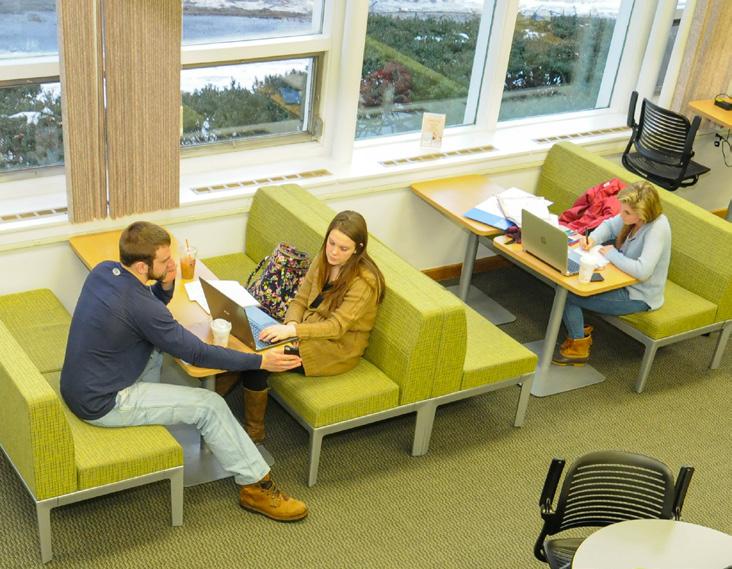
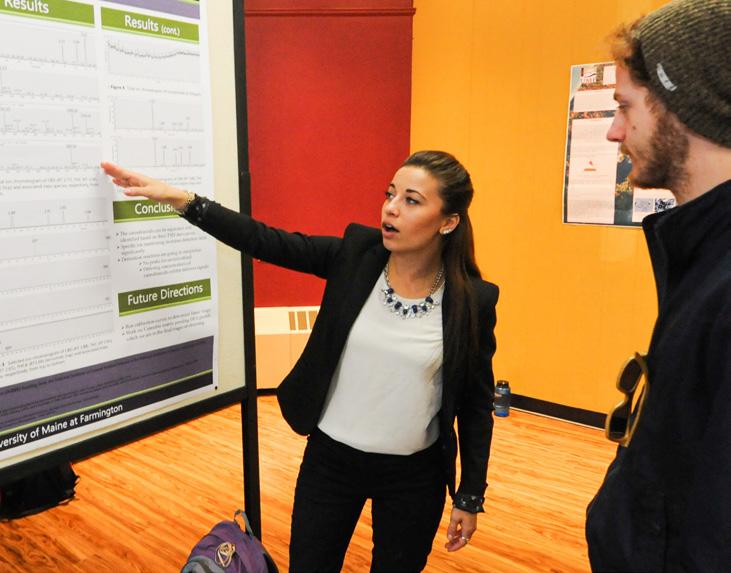
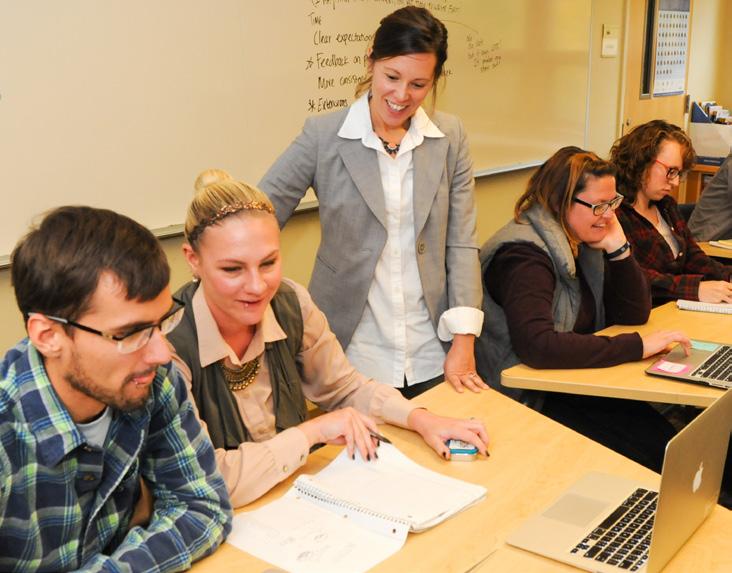
Those Who Can, Teach. Those Who Teach, Advance Their Careers at Farmington.
Whether you’re seeking to earn the credentials, knowledge and skill sets to climb the ladder at your current school, to become a more valuable educator wherever you choose, or to be the kind of educator other teachers want to emulate, the University of Maine at Farmington M.S.Ed. in Educational Leadership will help you get there.
M.S.Ed. in Educational Leadership is designed for professional educators who want to become leaders in their classrooms, schools, school districts or other educational settings.
• Delivered in blended format: 70% online / 30% face-to-face
• Emphasizes school improvement knowledge and skills grounded in research • Organized in a collaborative cohort format
Other Graduate Programs Offered at Farmington • M.S.Ed. in Early Childhood • M.S.Ed. in Special Education • M.A. in Counseling Psychology - Emphasis in Creative Arts • Online M.Ed. in Instructional Technology
Certificate in Administration • Certificate in Assistive Technology • Certificate in Gifted and Talented Education • Certificate in Math Leadership • And more! Accredited by the New England Commission of Higher Education (NECHE) and the Council for the Accreditation of Educator Preparation (CAEP)
> > > > >
•
M.S.Ed in
—
New
This Summer! Learn More: www.farmington.edu/edleader-1 NON PROFIT US POSTAGE PAID AUGUSTA, ME PERMIT NO. 275 M aine Education Association 35 Community Drive Augusta, ME 04330
Educational Leadership
Enrolling a
Cohort

















































 RayeAnne DeSoto, Kennebec County
RayeAnne DeSoto, Kennebec County
 Bill Hinkley, Lincoln County
Bill Hinkley, Lincoln County





 Diana Mahar, Washington County
Diana Mahar, Washington County



 Lianna Fenimore, Sagadahoc County
Lianna Fenimore, Sagadahoc County
























 By Leah Henderson
By Leah Henderson









